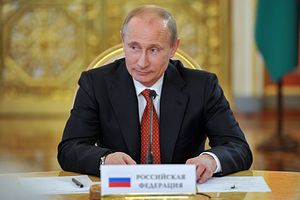The Rebalance author Mercy Kuo regularly engages subject-matter experts, policy practitioners, and strategic thinkers across the globe for their diverse insights into the U.S. rebalance to Asia. This conversation with Jill Dougherty – an expert on Russia and the former Soviet Union, with a three-decade career at CNN as Foreign Affairs Correspondent – is the 74th in “The Rebalance Insight Series.”
The personal rapport between Ronald Reagan and Mikhail Gorbachev was transformational in U.S. relations with the former Soviet Union. What kind of relationship between Donald Trump and Vladimir Putin will serve U.S. interests?
Ronald Reagan dubbed the Soviet Union the “Evil Empire,” and yet he was able to establish a relationship with Mikhail Gorbachev based on common interests that helped end the Cold War. Reagan understood that Gorbachev was trying to reform the Soviet Union. There was no guarantee it would work but Reagan, with his “trust but verify” approach, was willing to give it a chance. The result was the milestone arms control agreement, the 1987 Intermediate-Range Nuclear Forces Agreement.
Donald Trump enters the White House as anything but a Cold Warrior, tweeting that “Only ‘stupid’ people or fools” would think it’s bad to have a good relationship with Russia. He has praised Putin as a strong leader and a “very smart” man. Putin returned the compliment calling Trump a “smart man” in business. On the face of it, they would seem destined to have an excellent personal relationship.
It is important for Trump to realize, however, that Putin’s priority is to restore Russia’s power and influence in the world. He will work with the new U.S. president – if it is in Russia’s interest.
Trump’s task is to define what is in the United States’ interest. Trying to do a “deal” with Putin is not enough. There are potential roadblocks to cooperation, for example, on Iran. Russia, together with the Obama administration, forged the Iran nuclear agreement. Trump opposes it. Does that put him at odds with Putin on a key international security issues?
Personal relationships and mutual praise can help ease relationships between countries but Trump’s real test will be not to give too much too soon. Vladimir Putin has defined Russia’s interests; it’s now Trump’s turn to define what he sees as America’s interests. Just how those interests will align is not clear.
How might Putin capitalize on Trump’s strengths and weaknesses to advance Russian strategic objectives?
Trump’s strengths, as Vladimir Putin most likely sees it, include his willingness to “upset the applecart,” to challenge accepted norms of international behavior. This includes Trump’s willingness to cooperate with Russia, and even the Assad regime, in Syria; his criticism of NATO as “obsolete;” his dismissal of statements by U.S. intelligence agencies that Russia carried out cyber attacks on the U.S. election system. All of these views coincide with Vladimir Putin’s. But Trump has been known to change his mind. What he says now may not be what he does once in office. Putin may find himself challenged by a man who is even more unpredictable than he is.
How might Trump’s national security team formulate and implement Russia strategy?
Trump’s national security team holds contradictory views on Russia. Trump himself wants a better relationship and cooperation on solving major international challenges. His choice for defense secretary, retired Marine Corps General James Mattis, thinks Putin is a rule-breaker intent on re-establishing a sphere of influence in Russia’s former Soviet space. Trump’s choice for national security advisor, retired Army General Michael Flynn, has been interviewed on RT, a Russian network that U.S. officials charge is a propaganda outlet. With such disparate views, decision-making in the National Security Council could be difficult, leading to confusion not only with Moscow but with U.S. allies.
What are potential consequences of U.S.-Russia cooperation and competition in Europe and the Middle East?
At this stage, there is little cooperation between the U.S. and Russia in Europe; both sides are arming and challenging each other with worrying displays of military power. Former Soviet republics, now independent countries, are worried about potential Russian aggression and Donald Trump’s friendship with Vladimir Putin is not likely to change that.
Vladimir Putin has transformed Russia’s role in the Middle East. With its air campaign that has salvaged the regime of Syrian President Bashar al-Assad, Russia has guaranteed its role as a major player. Trump is not likely to challenge that. In fact, he has said he’s open to cooperating with Russia and even with Assad to fight terrorism. Whether he follows through on that is not clear.
And in Asia?
In Asia, Russia touts its newly-strengthened relationship with China, a consequence of estrangement from the West that has increased since Russia’s incursions in Ukraine. China talks a good game of friendship with Russia, but the United States is its most important trade partner. Donald Trump’s warnings of a potential trade war with China, however, could upset that usual dynamic.
































